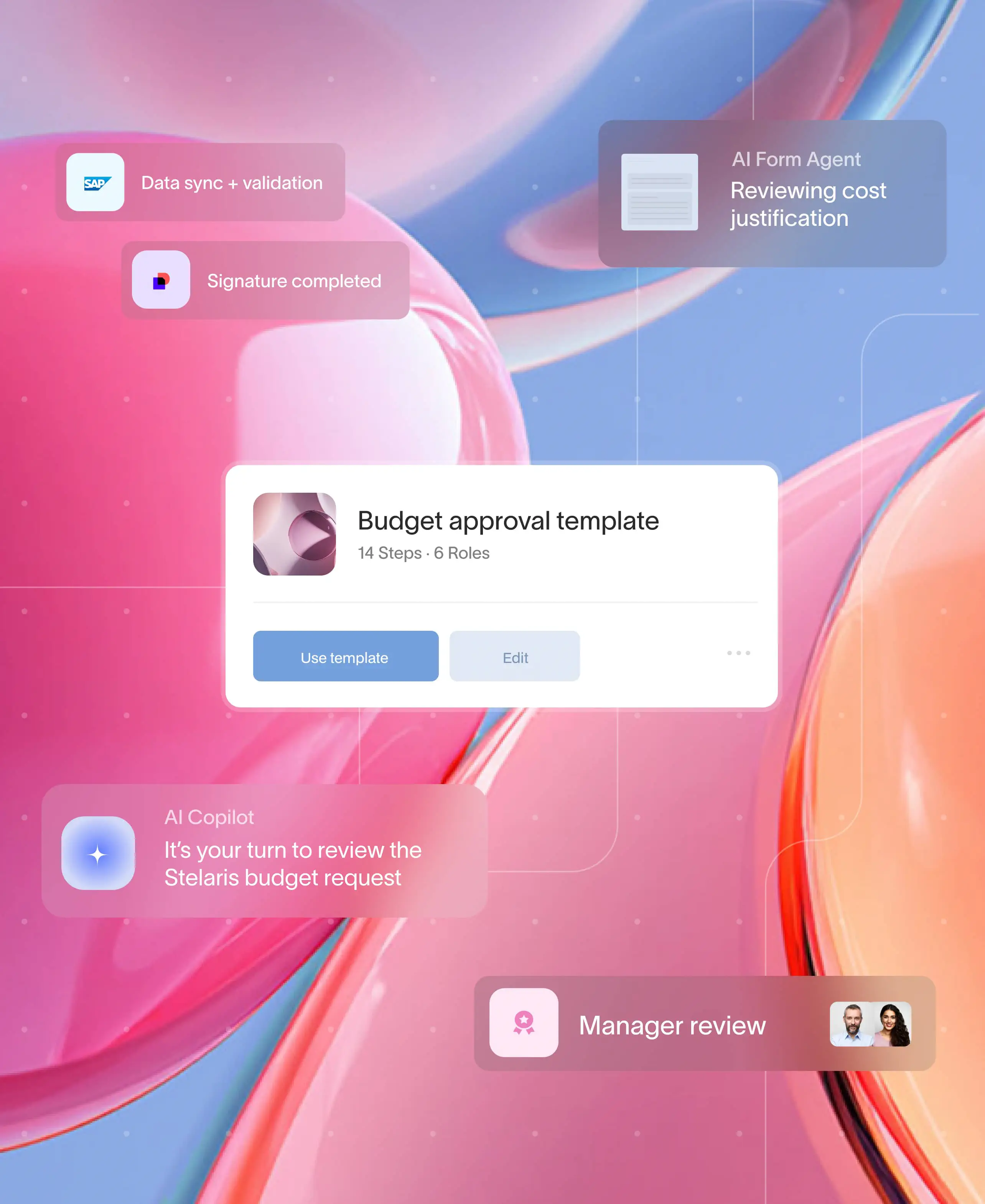.png)
At a glance
When comparing EZLynx vs Moxo, agencies need to weigh the difference between a static client portal and a workflow orchestration platform. EZLynx Client Center provides basic insurance servicing, while Moxo modernizes client experience with automation, AI, and multi-party collaboration. Agencies that choose Moxo see measurable ROI, including 54 percent faster onboarding, 95 percent less email clutter, and significant gains in client satisfaction.
Why the right client portal matters more than ever
Agencies know that client experience can make or break growth. The portal you choose is not just a convenience tool; it directly impacts onboarding speed, client satisfaction, and operational efficiency.
EZLynx Client Center has served many agencies well with insurance servicing basics, but is it enough in today’s environment? In this article, we compare EZLynx Client Center with Moxo and show why forward-looking agencies are adopting workflow-driven portals to scale smarter.
The problem with traditional client portals
Most portals in the insurance space focus on document access or payment collection. Useful, yes, but they do not address the bigger challenge agencies face: fragmented, manual workflows.
Picture a client onboarding process that requires multiple approvals, signatures, and back-and-forth emails. Without orchestration, teams spend weeks chasing responses and clarifying status updates. Clients feel the friction, and staff lose valuable hours.
EZLynx Client Center offers self-service for policyholders, but its design is limited to transactional interactions. For agencies managing multi-party workflows or delivering higher-touch services, the gaps are evident.
Why this matters now
Client expectations are shifting rapidly. Your competitors are offering mobile-first, guided experiences that make clients feel engaged from day one. If your agency is stuck with static portals, the risks are real: slower onboarding means lost revenue opportunities, operational inefficiency drains team capacity, and outdated client experience increases churn risk.
Agencies that modernize with workflow orchestration do not just keep up. They win. Faster onboarding, fewer errors, and proactive client engagement directly translate into retention and revenue growth.
What agencies should demand from a modern portal
When evaluating solutions, it is no longer enough to check the client portal box. Decision-ready agencies look for platforms that can orchestrate multi-step workflows, support multi-party collaboration, blend automation and AI, deliver frictionless client experiences, integrate with core systems, and guarantee enterprise-grade security.
EZLynx Client Center – strengths and limitations
EZLynx Client Center is a logical choice for insurance agencies already using the EZLynx Agency Management System. It provides a familiar extension for tasks like accessing policy documents, downloading ID cards, and making premium payments.
For agencies focused only on basic client servicing, this may suffice. But here is the limitation: EZLynx Client Center is transactional, not transformational. It does not orchestrate complex workflows, lacks embedded automation, and offers no AI support. It is not designed for multi-party engagement beyond insured clients. In short, it helps you maintain, not modernize.
Moxo – a modern alternative for agencies
Moxo takes a different approach. Rather than being a static portal, it functions as a workflow orchestration platform tailored for external collaboration.
Built for external workflows
Moxo is built for orchestrating complex, cross-party processes. From client onboarding to renewals and vendor coordination, Moxo turns scattered tasks into structured flows.
Workflow automation
Moxo automates repetitive steps like reminders, approvals, and document reviews. AI agents answer client questions instantly, summarize interactions, and flag delays so nothing slips through the cracks.
Document management
Moxo streamlines document management with secure storage, easy sharing, and real-time collaboration. Keep all your files organized and accessible in one place.
Frictionless for clients
With features like magic links, clients act without logins or training. Participation becomes effortless, reducing drop-offs and frustration.
Integrated and compliant
Moxo integrates with CRMs, AMS platforms, and productivity tools. Agencies maintain full compliance with audit trails, SAML/SSO, and enterprise-grade controls.
Learn more about how Moxo client portals modernize external collaboration. Book a demo today.
Case example: An agency moving beyond transactional portals
One mid-sized digital agency struggled with onboarding delays. Clients often missed steps because instructions were buried in long email threads. The result: onboarding stretched to three weeks, and staff spent hours chasing updates.
After adopting Moxo, the agency restructured onboarding into a guided workflow. Clients received intelligent reminders with direct action links. Routine approvals were automated, while AI summarized progress for managers. Onboarding time dropped by 54 percent, and email volume fell by 95 percent.
The impact was tangible: client satisfaction rose, and account managers freed up capacity to take on more clients without adding headcount.
The ROI case for Moxo
Choosing Moxo isn’t just about modern features—it’s about measurable business outcomes. Agencies using Moxo’s workflow platform have reported a 75 percent increase in client-facing team capacity, an 80 percent boost in task completion rates, and a 95 percent drop in email clutter.
These efficiency gains directly translate to more time for revenue-generating work, quicker client onboarding, and smoother document collection. With fewer bottlenecks, teams are free to focus on relationships rather than chasing paperwork. Even without running the full ROI calculator, most agencies can see the payoff through time saved and clients retained.
Want to quantify the benefits? Try our ROI calculator to see how much your agency could save by moving to an automated, client-first portal and reporting dashboard.
Choosing the right portal for your business
If your agency only needs a basic portal for clients to download policy documents or make payments, EZLynx Client Center may suffice. But modern agencies looking to scale operations, cut inefficiencies, and deliver a standout client experience require more.
Moxo is designed to orchestrate external workflows, bringing approvals, document collection, secure messaging, and real-time updates into one client-facing hub. It enables agencies to handle more clients with fewer emails, while maintaining compliance and brand consistency across every touchpoint.
Book a Moxo demo or schedule an ROI consultation to explore your agency’s growth potential with workflow automation.
FAQs
How does Moxo pricing compare to EZLynx Client Center?
EZLynx Client Center is often bundled with AMS licenses. Moxo offers flexible pricing based on active workflows and users, making it scalable for both midsize and enterprise agencies.
Is Moxo difficult to implement?
Not at all. Moxo is built for business users, not IT teams. Most agencies launch quickly using pre-built workflow templates and adapt them over time as needs evolve.
Can Moxo integrate with our AMS or CRM tools?
Yes. Moxo connects seamlessly with CRMs like Salesforce and HubSpot, and can integrate with custom AMS platforms through APIs and webhooks.
How secure is Moxo for client data?
Moxo meets enterprise-grade standards, including encryption, SAML/SSO, audit trails, and GDPR-compliant deployment options to support financial services regulations.
What kind of ROI can agencies expect?
Agencies typically save 10 to 15 hours per week per client-facing manager, reduce onboarding time by over 50 percent, and cut email traffic by more than 90% within the first few weeks.






